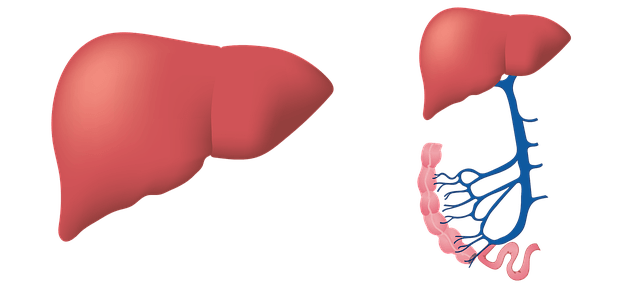How Viral Hepatitis Could be Managed through 5 Healthy Food Choices?
Viral hepatitis

Overview of Viral Hepatitis
Viral hepatitis is basically an inflammation of liver. Viral hepatitis happens when virus enters into liver cells named hepatocytes and replicate there. Such activity disturbs liver functioning and hyper activity of immune system further worsens the condition. Liver damage caused due to viral hepatitis affects overall health.
According to WHO, viral hepatitis B & C kills 3500 patients daily round the globe. Viral hepatitis, also known as liver disease or hepatocellular carcinoma (HCC), can cause a variety of symptoms and complications in the body. Around 6000 new viral hepatitis patients are reporting on daily basis globally.
According to Global Hepatitis Report 2024, viral hepatitis is a second major killer after tuberculosis which kills around 1.3 million people globally. World Health Organization is still confident that it could be eradicated till 2030 if solid objective efforts made.

The reports collected from 187 countries reveals that viral hepatitis deaths are increasing from 1.1 million deaths in 2019 to 1.3 million deaths in 2022. Out of these alarming death tolls around 83% deaths were reported due to hepatitis B and remaining 17% deaths happen due to hepatitis C. it affected around 58% of men population.
WHO latest research estimates represent that around 254 million people were fighting against viral hepatitis B and about 50 million people were victim of hepatitis C in 2022. Interestingly, viral hepatitis is affecting the people in age bracket of 30 to 54 years which accounted around half of its burden while about 12% children are patients of viral hepatitis.
Viral hepatitis has the following most common symptoms which includes include fatigue, yellowing of skin, nausea, vomiting, loss of appetite, and extreme weight loss.
In some cases, the virus may spread through blood or other bodily fluids and can cause serious damage to internal organs and tissues. Here are some of the ways that this deadly disease can affect a person’s life.
Symptoms of Viral Hepatitis
Ten countries named Pakistan, Russia, China, India, Nigeria, Vietnam, Ethiopia, Philippines, Bangladesh and Indonesia are contributing around 2/3rd viral hepatitis burden of the world. Ensuring proper and timely diagnosis and treatment in these 10 countries by 2025 is part of Sustainable Development Goals.
The signs of hepatitis usually first appear several weeks after infection, but some people may not experience any specific signs until up to three months after infection. Some common signs include:
- Fever
- Fatigue
- Nausea
- Vomiting
- Loss Of Appetite
- Extreme Weight Loss
- Joint pain
- Pain in right side of abdomen
- Diarrhea
- Yellowish skin and eyes
- Pale and clayed stool
- Dark urine
Infection with the hepatitis B virus (HBV) causes inflammation in the bile ducts, which can lead to jaundice, yellowing of the liver and severe pain when passing bile out of the stomach. When the liver does not absorb enough oxygen, it can become inflamed and scarred, which can result in scarring of the liver. This can lead to an accumulation of fluid in the liver and eventually liver failure.
Surgical procedures are necessary to remove infected tissue or the infected bile ducts. The virus itself is unable to travel from the liver to the bloodstream, so surgical removal of infected tissue or the removal of bile ducts is usually necessary.
Diet to Avoid while Dealing with Viral Hepatitis
A healthy diet should provide all the nutrients that your body needs to function properly. It is important to avoid eating foods high in fat, which will increase the risk of contracting the viruses. These include fatty meat, red meat, and processed meats.
High-fat dairy products like milk, cheese, and yogurt should also be avoided. Processed foods like bread and pastries should be consumed minimally. Foods high in sugar should be consumed only as part of a balanced diet. Excess sugar consumption can contribute to obesity and diabetes.
Alcohol can be consumed in moderation, but excessive consumption can lead to liver disease. Many chronic diseases are caused by poor nutrition. Eating a balanced diet is essential for preventing these diseases.
Liver Friendly Food Choices to Manage Viral Hepatitis
Viral hepatitis poses a significant health concern globally. Understanding the role of nutrition in managing this condition is crucial. Certain foods can support liver health and overall well-being in individuals living with it. In this essay, we explore how dietary choices can impact viral hepatitis and suggest friendly foods that may aid in its management.
The liver friendly foods may include:
- Foods high in antioxidants, such as fruits and vegetables, can help reduce inflammation and oxidative stress within the liver, potentially slowing down disease progression.
- Incorporating whole grains, lean proteins, and healthy fats into one’s diet can support optimal liver function and overall health.
- Hydration plays a vital role in managing viral hepatitis. Adequate water intake helps flush toxins from the body, promoting liver detoxification.
- Herbal teas and coconut water are excellent alternatives to sugary beverages, providing hydration without added sugars or artificial additives that may burden the liver.
- Probiotics-rich foods, including yogurt, kefir, and fermented vegetables, can help maintain a healthy gut microbiome, which is intricately linked to liver health.
Medical Treatment of Viral Hepatitis
Medical treatment may be necessary if acute viral hepatitis becomes more complicated or leads to life-threatening complications such as liver failure. A doctor may recommend medical treatments including antiviral medications and/or corticosteroids. Antivirals help fight off the virus, while corticosteroids help reduce inflammation in the body.
Surgery may be used if the patient continues to develop significant complications. Sometimes medication may have to be stopped due to side effects.
Medications for Viral Hepatitis
It is treated with a combination of antiviral drugs and oral antifungal medication. Patients may need additional therapies, especially in certain situations.
If patients have a history of cirrhosis (scarring of the liver), then they may have to continue taking medication. The treatment of NASH requires a different approach than treatment for alcohol-associated hepatitis (AH).
Prevention of Viral Hepatitis
As previously mentioned, prevention is key. People who are at higher risk should follow these steps to reduce their chance of getting hepatitis.
- Eat a well-balanced, nutrient-dense diet rich in vegetables, fruits, lean protein, and healthy fats. Limit your intake of unhealthy food or beverages.
- Exercise regularly and do not smoke or drink heavily.
- Practice safe sex and get regular checkups with a healthcare provider.
- Stay socially active and avoid unsafe sexual activities with others. Be aware of new sexually transmitted diseases (STDs) and take precautions when you have been exposed to them.
- Get vaccinated against hepatitis B and C, and for various other illnesses. Vaccines protect people from a wide range of diseases, including hepatitis. Although there are vaccines available, the effectiveness of those vaccines depends on how often a person gets immunized and the length of time between vaccination and exposure to a vaccine.
Talk to a healthcare professional about your concerns before having unprotected sex. Use protection during sex and wear a condom if you’re sexually active.
Action Planning to Eradicate Viral Hepatitis Epidemic
The recent researches embark upon the recommended actions to facilitate proper treatment and diagnosis of hepatitis and to eradicate it till 2030. The recommendations included the following points:
- Mobilization of innovative finance
- Ensuring easy access to diagnosis and testing of viral hepatitis
- Emphasize upon actions rather planning to achieve targets
- Primary care prevention improvements
- Facilitating optimum service delivery
- Investments in prioritized countries
- Actions must be backed by accurate and timely data sources
- Research and development to find out cure of hepatitis B
- Social mobilization
Conclusions
In conclusion, incorporating nutrient-dense, liver-friendly foods into one’s diet can play a supportive role in managing viral hepatitis. By emphasizing a balanced diet rich in antioxidants, hydration, and probiotics, individuals with viral hepatitis can potentially enhance liver function and overall well-being.
FAQs
What is viral hepatitis?
Viral hepatitis is basically an inflammation of liver.
What virus do to liver?
Viral hepatitis happens when virus enters into liver cells named hepatocytes and replicate there.
Is viral hepatitis is deadly?
Yes, if remain untreated.






